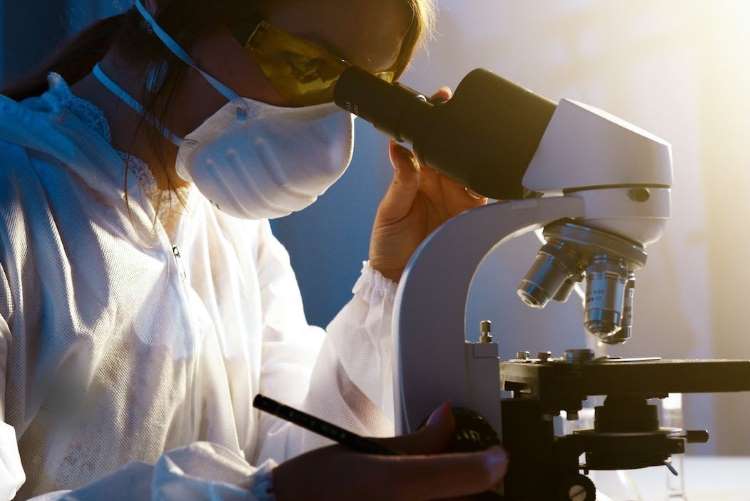
My journey as an infectious disease specialist has been one marked by challenges, resilience, and, most importantly, the pursuit of knowledge. The COVID-19 pandemic has reshaped clinical research in profound ways and the lessons from the episode can guide us in days to come. While much of our focus has understandably been on non-communicable diseases that afflict the lungs, it is equally vital to recognise the formidable burden of respiratory pathogens that our country faces. These pathogens possess pandemic potential, as the COVID-19 pandemic demonstrated. This viral outbreak laid bare the vital importance of understanding and addressing these respiratory threats, not just as isolated incidents but as part of the broader healthcare landscape.
I will discuss the impact of COVID-19 on clinical research, specifically focusing on how this crisis influenced the field of clinical research. Clinical research, as a discipline, is built on the foundation of evidence. In the context of a novel and rapidly spreading virus, generating robust evidence became both a challenge and a necessity.
In the early days of the pandemic, the country was grappling with lockdowns, restricted movement, and a healthcare system overwhelmed by the sheer magnitude of the crisis. Clinical research, dependent on patient participation, faced an unprecedented reluctance among individuals to engage with healthcare facilities. Recruiting participants became a monumental challenge. The significance of this hurdle cannot be overstated, as it was evidence from clinical research that held the key to understanding and mitigating the virus’s impact.
The urgency of finding answers in the face of this novel threat led to an interesting conundrum in clinical research. Traditionally, research endeavours require meticulous planning, preparation, and regulatory approvals, which can often take an extended period. However, during a pandemic, time becomes a precious commodity, and the race to uncover answers accelerates exponentially. Researchers and healthcare professionals found themselves in an unprecedented situation—needing to deliver rapid results while adhering to rigorous research standards.
In this high-pressure environment, what transpired was both remarkable and revealing. Multiple single-centre studies mushroomed across the country as investigators sought answers to pressing questions about COVID-19. While these efforts were commendable and well-intentioned, they also highlighted the concept of research waste. Many studies, conducted in isolation and without the collaborative framework needed for robust research, failed to provide conclusive results. This fragmentation underscored the critical importance of well-designed, collaborative research.
The COVID-19 pandemic not only presented a challenge but also served as an impetus for change. It illuminated the necessity of efficient, multi-site collaborative studies. The pandemic demonstrated that when we come together, transcending institutional boundaries and geographic constraints, we can accomplish far more than we ever could in isolation. Collaborative efforts, which tend to flourish in times of crisis, resulted in data sharing, technology transfer, and knowledge exchange on a global scale. It is crucial to recognise that if we can foster effective collaboration during a pandemic, this spirit of cooperation can be harnessed to address ongoing healthcare challenges.
READ I DESH Bill: India looks to match China’s SEZ success
Transformation of clinical research
The importance of ready, well-equipped trial networks also became apparent. These networks could streamline research by providing readily available centres capable of swiftly conducting studies. During a crisis, building research infrastructure from scratch is not feasible. Having established trial networks in place would enable faster initiation and completion of studies, ensuring that evidence is generated promptly.
The pandemic forced us to rethink traditional research methods and embrace innovation. Remote monitoring, telehealth visits, and creative data collection techniques became indispensable tools. These adaptations not only enhanced research efficiency but also broadened our understanding of what is achievable in a rapidly evolving healthcare landscape.
However, cultivating a robust research ecosystem is an ongoing process. It necessitates the sensitisation of ethics committees to expedite reviews without compromising ethical standards. Building such an ecosystem during periods of stability ensures that we are better prepared to respond swiftly during crises.
In our quest to transform clinical research, we must also consider new research designs. Master protocols, which enable the investigation of multiple treatments or interventions within a single trial, hold immense promise. These designs can significantly expedite the research process while maintaining scientific rigor.
As we contemplate the future of clinical research in our country, the lessons from the COVID-19 pandemic are invaluable. Collaboration, the establishment of trial networks, the adoption of innovative research methodologies, and the development of a robust research ecosystem should be at the forefront of our efforts.
The COVID-19 pandemic served as a crucible that tested the resilience of clinical research. It underscored the need for a fundamental shift in our approach—one that prioritises collaboration, network-building, innovation, and efficiency. As young minds embarking on your careers, you inherit the responsibility of carrying these lessons forward. Embrace them, for they hold the key to a brighter, healthier future for all. Together, we can transform clinical research in India and, in doing so, elevate the quality of healthcare for our nation.
(Dr Aparna Mukherjee is Senior Scientist and In-charge of clinical studies, trials & projection unit at Epidemiology & Communicable Diseases Division, Indian Council of Medical Research, New Delhi. This article is the edited version of Dr Mukherjee’s presentation at a roundtable organised by Policy Circle.)
